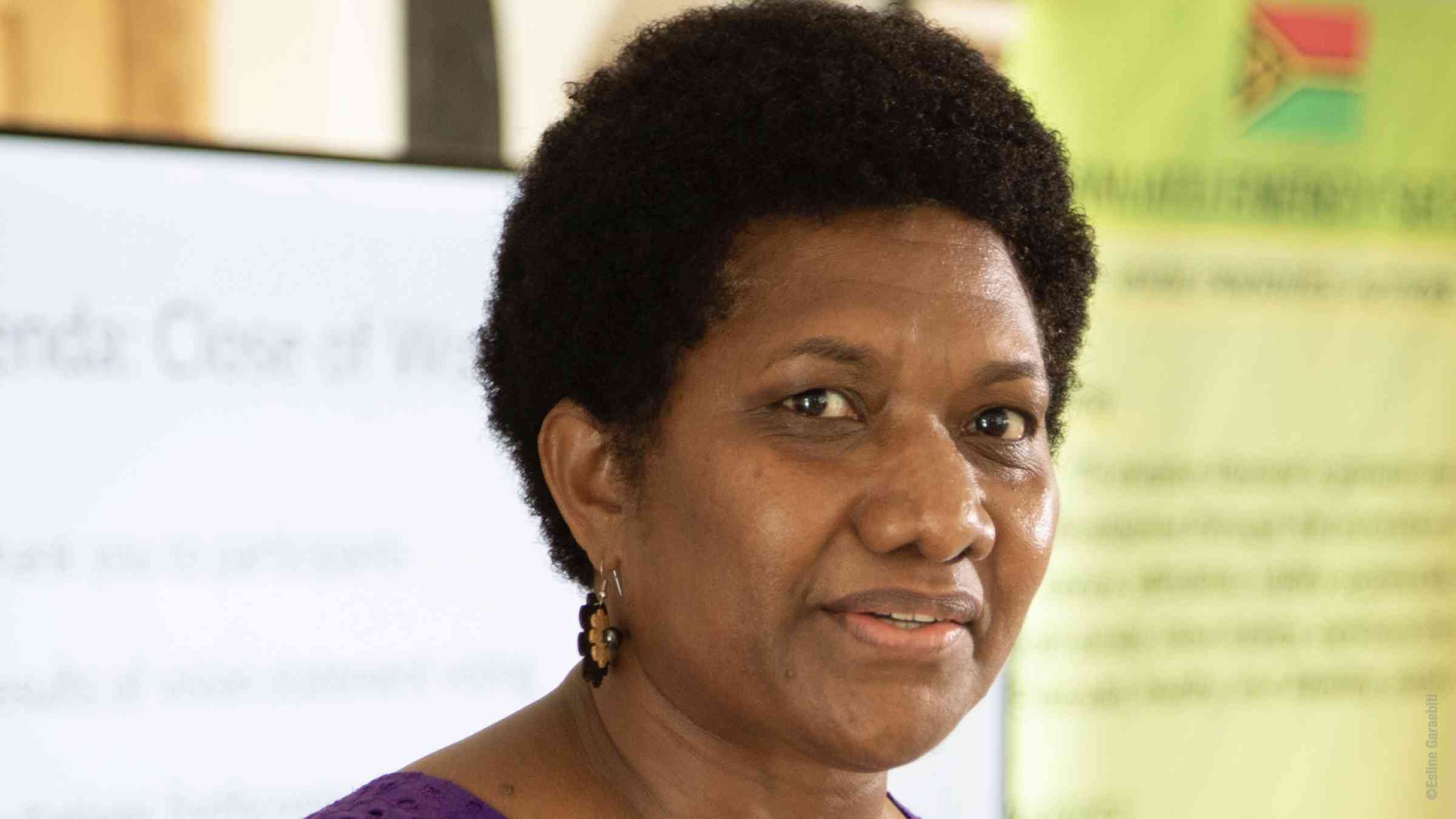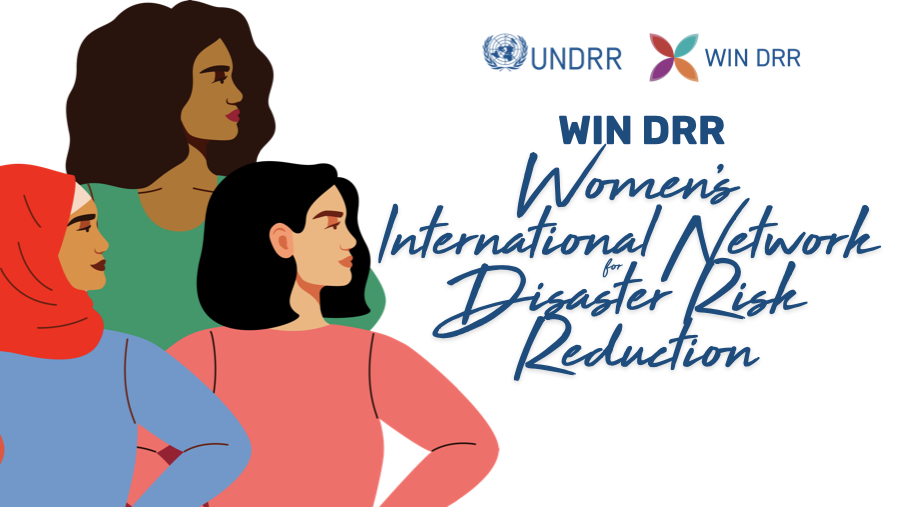Esline Garaebiti: “If you understand the risk, then you can understand how to cope with it”

“If you understand the risk, then you can understand how to cope with it,” Esline says. “But if you do not understand, it is going to be hard - slowly you see the impact, but you don’t know how to deal with it."
Esline has spent most of her career improving early warning systems. In her previous role, working as Geo-Hazards Manager for Vanuatu, she established the Oceania regional seismic network (ORSNET) between Vanuatu, New Caledonia, Solomon Islands, Papua New Guinea, Tonga and Samoa to improve the tsunami detection system in the region.
“Now we can detect an earthquake quickly, one minute after the occurrence,” she says. “In the past it was 15 to 20 minutes before we detected the location.”
This rapid detection means tsunami warnings are sent out faster, which enables those who may be in a tsunami’s path to get to higher ground.
In her current role (as the Director General of the Ministry of Climate Change Adaptation, Meteorology, Geo-Hazards, Environment, Energy and Disaster Management), Esline and her team have worked to establish committees at the community level that reflect the diversity of the community. “We are training people on how to identify their own gaps and their own needs,” Esline says. “They can identify what they understand about disaster risk in their own communities.”
Esline understands the importance of local, community-led solutions, “we need to encourage them to build capacity in their community.”
Esline cites an example of collaboration with the Department of Agriculture, who have identified varieties of crops that will be resilient to climate change impacts. “We go out to communities and teach new techniques to enhance food security. The Ministry of Agriculture distributes seeds to drought resistant crops.”
Esline is also focused on how to make disaster risk reduction more inclusive. “Reducing risks requires the inclusion of women not only in risk management planning and the implementation processes but also in leadership roles,” Esline says. “Involving women in disaster risk reduction in Vanuatu helps ensure that the needs of the most at-risk and marginalised people are considered in national, provincial and community disaster risk management planning, from prevention to the recovery.”
She says women are improving the way disasters and climate change are managed in Vanuatu. “Women can be leaders, wherever they are starting from. They can one day become Minister for climate change or disaster risk. They can contribute to decision-making at every level.”
Learn more
Esline Garaebiti is the Director General of the Ministry of Climate Change Adaptation, Meteorology, Geo-Hazards, Environment, Energy and Disaster Management in Vanuatu. She is the winner of the WIN DRR Leadership Awards for Excellence for 2022.
Background
The WIN DRR Leadership Awards recognise women's achievements in DRR across the Asia-Pacific region. The awards are part of UNDRR's flagship women's leadership initiative the Women's International Network for Disaster Risk Reduction (WIN DRR), supported by Australian Aid. There are two award categories, the Excellence Award, proudly sponsored by SM Prime, and the Rising Star Award.

Join the Women’s International Network on Disaster Risk Reduction
The Women's International Network on Disaster Risk Reduction (WIN DRR) is a professional network to support women working in disaster risk reduction, in all their diversity. WIN DRR promotes and supports women's leadership in disaster risk reduction across the Asia Pacific region, and aims to reduce the barriers faced by women and empower them to attain leadership and enhance their decision-making in disaster risk reduction. WIN DRR is supported by UNDRR and the Government of Australia.
Editors' recommendations
- WIN DRR Leadership Awards 2022: Excellence award - Finalists
- WIN DRR Leadership Awards 2022: Rising Star award - Finalists
- View more on UNDRR's work on Women's Leadership
- Pacific geo-hazards expert and Indian researcher of river flood risk awarded top honours for women’s leadership in disaster risk reduction